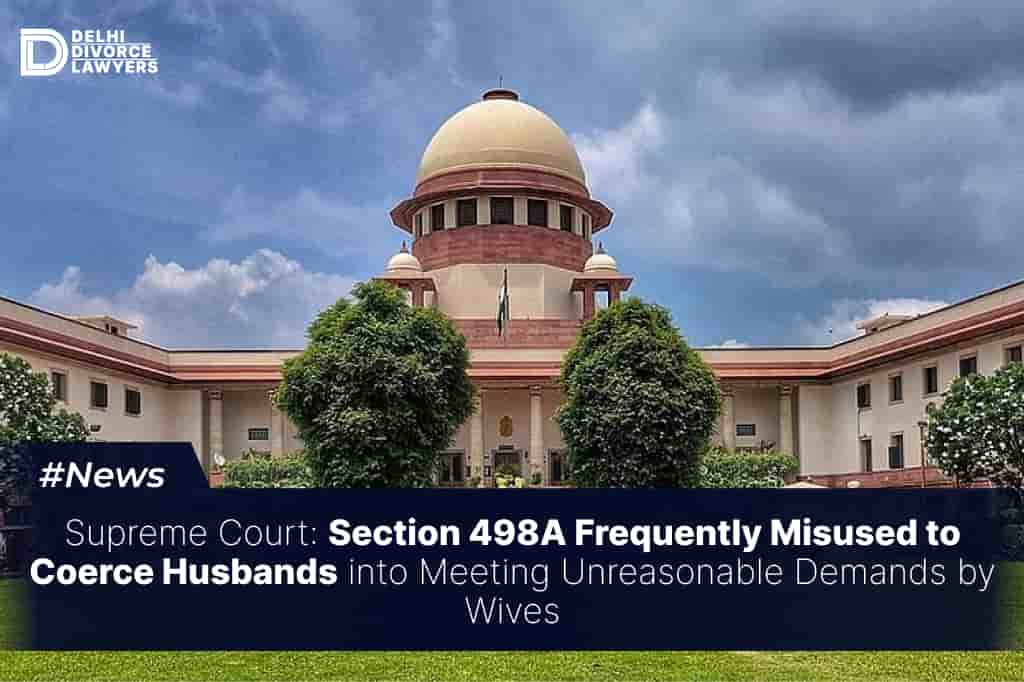The Court said that there is a growing trend to use the provision as a tool by women for unleashing personal vendetta against the husband and his family.
On Tuesday, the Supreme Court raised concerns about the widespread misuse of Section 498A of the Indian Penal Code (IPC), which penalizes cruelty by husbands and their relatives against married women [Dara Lakshmi Narayana and Others v. State of Telangana and Another].
A Bench comprising Justice BV Nagarathna and Justice N Kotiswar Singh observed that although the provision was designed to shield women from domestic violence and harassment, it is increasingly being exploited by some women to pressure their husbands and in-laws into meeting unreasonable demands.
“Sometimes, recourse is taken to invoke Section 498A of the IPC against the husband and his family in order to seek compliance with the unreasonable demands of a wife,” the Court said.
The Court observed a growing tendency among women to misuse the provision as a means to settle personal grievances against their husbands and their families.
“In recent years, as there have been a notable rise in matrimonial disputes across the country, accompanied by growing discord and tension within the institution of marriage, consequently, there has been a growing tendency to misuse provisions like Section 498A of the IPC as a tool for unleashing personal vendetta against the husband and his family by a wife. Making vague and generalised allegations during matrimonial conflicts, if not scrutinized, will lead to the misuse of legal processes and an encouragement for use of arm twisting tactics by a wife and/or her family,” the judgment said.
The Court made these observations while dismissing the cruelty and dowry cases filed by a wife against her husband and in-laws. It was hearing an appeal from the husband and his family members, who had challenged the Telangana High Court’s decision to deny their request for case dismissal.
The wife had lodged these complaints against her husband and in-laws after he filed for the dissolution of their marriage.
After considering the arguments, the Supreme Court concluded that the wife had filed the cases to resolve personal grievances, thereby misusing provisions intended for her protection.
We are not, for a moment, stating that any woman who has suffered cruelty in terms of what has been contemplated under Section 498A of the IPC should remain silent and forbear herself from making a complaint or initiating any criminal proceeding. That is not the intention of our aforesaid observations but we should not encourage a case like as in the present one, where as a counterblast to the petition for dissolution of marriage sought by the first appellant-husband of the second respondent herein, a complaint under Section 498A of the IPC is lodged by the latter,” the Court observed while quashing the case.
This is not the first time the Court has expressed concerns about the misuse of Section 498A.
Recently, it noted that this provision is one of the most frequently abused laws.

